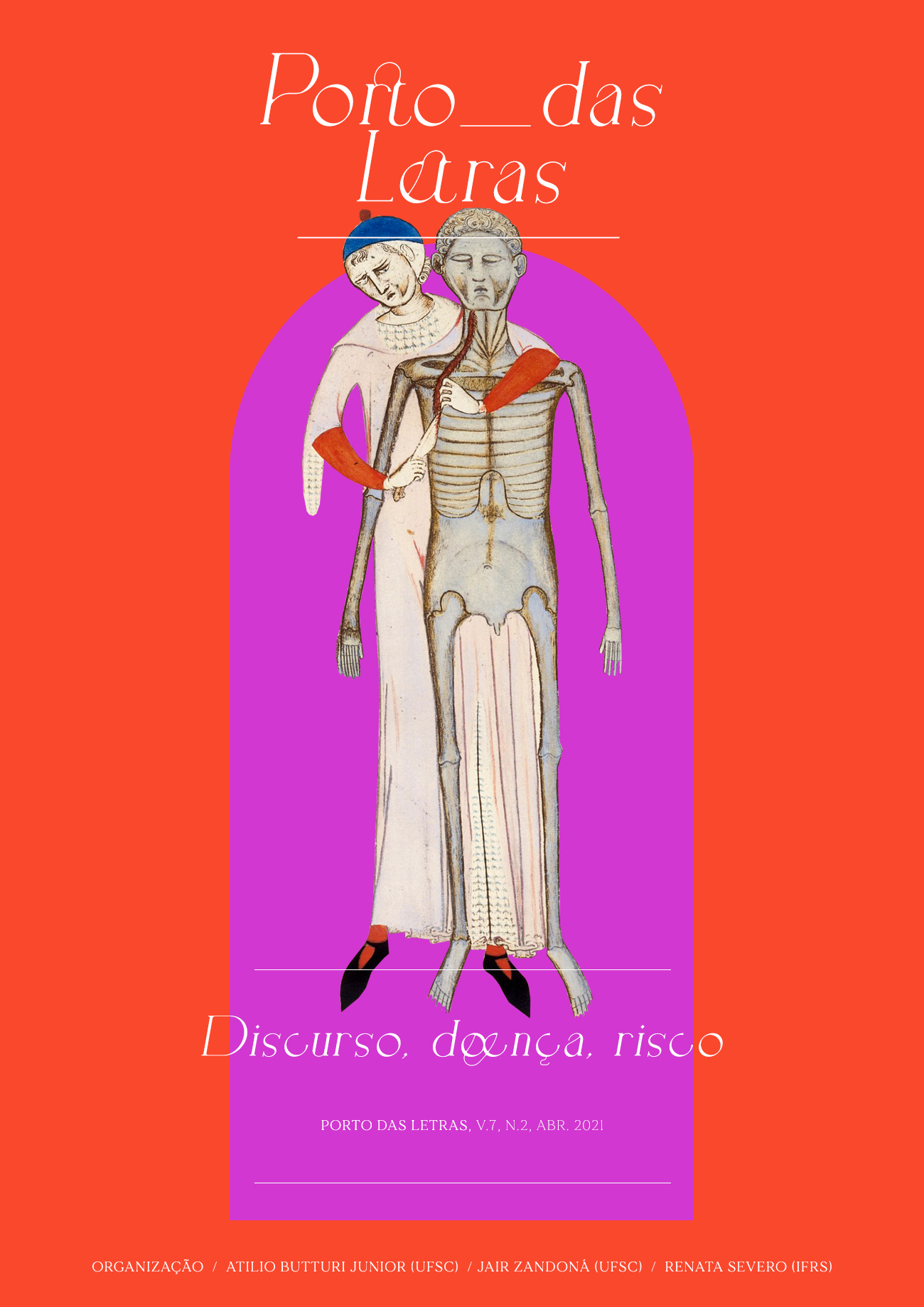Discurso em análise
uma reflexão sobre a luta de classes materializada no discurso acerca da pandemia da covid-19
Keywords:
Covid-19; Sentidos; Discurso; Luta de classes.Abstract
With affiliation to the Discourse Analysis of tradition in Michel Pêcheux, we seek in this text to break with the effects’ evidence of senses constructed about Covid-19, exposing the reader's gaze to the opacity of the senses. Here, in our view, is the role of language in reflecting on public issues in times of the pandemic: understanding the senses that are said about them, but also, and, above all, those that are not said and mean, (re) producing senses. For this, we bring to analysis, a cutting of a discourse representative of a privileged class in the capitalist production system in which we live, whose meaning effects textualize, in our opinion, their interests. Our goal is to understand how subjects enrolled in an economically favored subject position signify the consequences of Covid-19, social isolation and the other. We start from the understanding that the materiality of the language does not guarantee us access to its order, so it is essential that we intervene in history and ideology, to account for the historicity of the senses. Thus, we seek to reflect on three guiding questions of this proposal, and we conclude with the understanding that it is a discourse that shows the class struggle.
References
COURTINE, J-J. Análise do Discurso: o discurso comunista endereçado aos cristãos. Tradução de Bacharéis em Letras pela Universidade Federal do Rio Grande do Sul. São Carlos: EdUFSCar, 2009 [1981].
DUCROT, O. Dizer e não dizer. Princípios de Linguística Semântica. São Paulo: Cultrix, 1977.
INDURSKY, F. Da heterogeneidade do discurso à heterogeneidade do texto e suas implicações no processo da leitura. In: ERNST-PEREIRA, A.; FUNCK, S. (orgs.). A leitura e a escrita como práticas discursivas. Pelotas: Educat, 2001.
______. Lula lá: estrutura e acontecimento. 2003. Organon, v. 17(35): 101-121.
LIPPI, G. et al. The critical role of laboratory medicine during coronavirus disease 2019 (COVID-19) and other viral outbreaks. Clinical Chemistry and Laboratory Medicine, March 4, 2020. Tradução do Programa de Voluntariado Acadêmico do Curso de Medicina da Universidade Federal do Paraná. Fonte: Disponível em: <http://www.toledo.ufpr.br/portal/wp-content/uploads/2020/04/O-papel-crucial-da-medicina laboratorial-durante-a-doen%C3%A7a-do-coronav%C3%ADrus-2019-COVID340.docx-compactado.pdf>. Acesso em: 08/09/2020.
MARX, K.; ENGELS, F. O manifesto Comunista. Tradução de Ridendo Castigat Moraes. Fonte Digital. 2009 [1848].
ORLANDI, E. A linguagem e seu funcionamento: as formas do discurso. Campinas, SP: Pontes Editores, 2011.
______. Análise de Discurso – Princípios e Procedimentos. Campinas, SP: Pontes Editores, 2012.
PÊCHEUX, M. Semântica e Discurso: uma crítica à afirmação do óbvio. 4. ed. Tradução de Eni Puccinelli Orlandi et al. Campinas, SP: Editora da Unicamp, 2009 [1988].
______. Por uma análise automática do discurso: uma introdução à obra de Michel Pêcheux. 4. ed. Organização de Françoise Gadet e Tony Hak. Tradução de Bethania Mariani et al. Campinas, SP: Editora da Unicamp, 2010 [1990].
SOBRAL, A. O que faz um profissional de Letras? 2017. In: Blog da Párabola Editorial. Fonte: Disponível em: <https://www.parabolaeditorial.com.br/blog/entry/o-que-faz-um-profissional-de-letras.html>. Acesso em: 03/05/17.
VINHAS, L. 2019. Processo de interpelação ideológica e cinismo na pesquisa em Análise do Discurso. Revista Letras Raras, 8 (2): 29-40.
Downloads
Published
How to Cite
Issue
Section
License
Os autores concordam com os termos da Declaração de Direito Autoral, que se aplicará a esta submissão caso seja publicada nesta revista (comentários ao editor podem ser incluídos a seguir).

